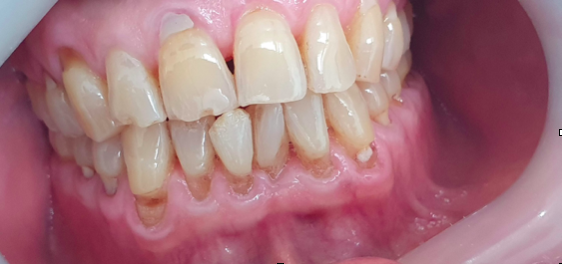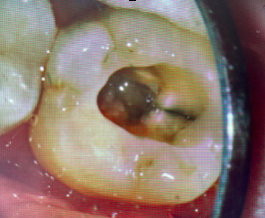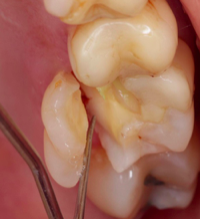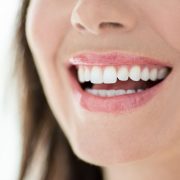Bruxism is the medical term used to describe teeth grinding and clenching. Bruxism can occur during the day or night, and can have various effects on oral and general health. Here are some of the most common effects of bruxism:
(a)Severe receding gums with wearing and chipping of all anterior and posterior teeth.
2.Tooth Damage: Constant clenching or grinding of teeth can cause significant wear and tear on the tooth enamel. Over time, teeth can become severely worn, chipped or fractured, leading to dental decay and other dental problems.
(b) & (c). Fractured molars due to Bruxism
2. Jaw Pain and Headaches: The repetitive movement of the jaw while grinding or clenching
the teeth can cause soreness, tension, and pain in the jaw muscles. Additionally, individuals
with bruxism may develop headaches, which can be caused by the jaw pain or related
tension in the head and neck muscles.
3. TMJ Disorders: Bruxism can cause temporomandibular joint (TMJ) disorders that can cause pain in the jaw joint and associated muscles, leading to stiffness and limited jaw movement. The grinding and clenching of teeth can also result in popping or clicking sounds as the jaw moves.
4. Sleep Disturbances: Bruxism can disrupt sleep patterns and lead to tiredness and lack of
sleep. Individuals who grind or clench their teeth at night may become restless or have
insomnia.
5. Exacerbated Dental Work: Dental work such as fillings, crowns, and bridges may become
damaged or worn down more quickly in individuals with bruxism. Chronic teeth grinding and
jaw clenching can result in damage to dental work that may require replacement or repair.
6. Gum Recession: Bruxism forces can cause the gums to become sore and recede. Receded
gums can expose the root of the tooth, leading to sensitivity and increasing the risk of tooth
decay and loss.
The treatments for bruxism Include:
1. Stress management and relaxation techniques such as yoga, meditation, or counselling
2. Dental treatments such as bite splints or mouth guards to protect teeth
3. Orthodontic treatments to correct malocclusion
4. Muscle relaxants prescribed by a doctor
5. Botox injections to relax jaw muscles
6. Lifestyle changes such as avoiding caffeine, alcohol, and tobacco
If you suspect that you may have bruxism, it is important to seek dental evaluation and treatment to prevent further damage and alleviate symptoms. Your dentist may recommend a custom fit mouthguard or splint to be worn during sleep to prevent further grinding and clenching of your teeth. Additionally, stress-reducing techniques and lifestyle modifications such as regular exercise and stress management may help reduce the risk of bruxism.
Contact Sonria Dental Clinic, if you have any questions about Bruxism, our orthodontist, Ines Fruhbeck will only be too please to discuss the matter with you.
You can find us at 25 Devonshire Place, W1G 6JD.
Tel: 02072241402











Leave a Reply
Want to join the discussion?Feel free to contribute!